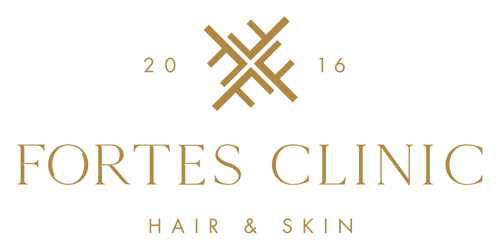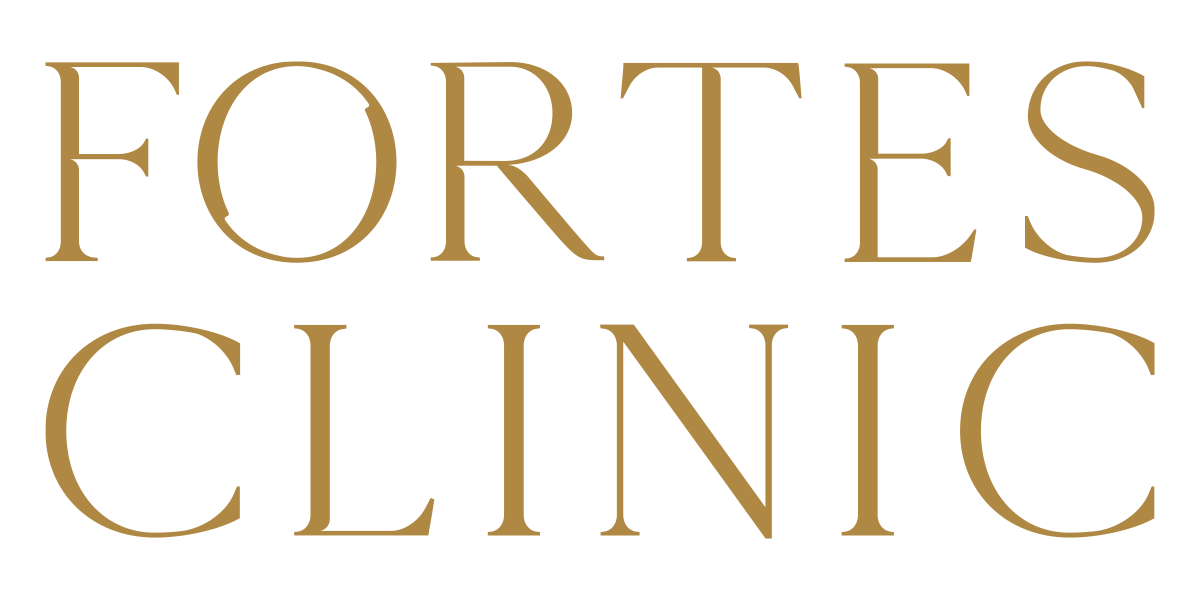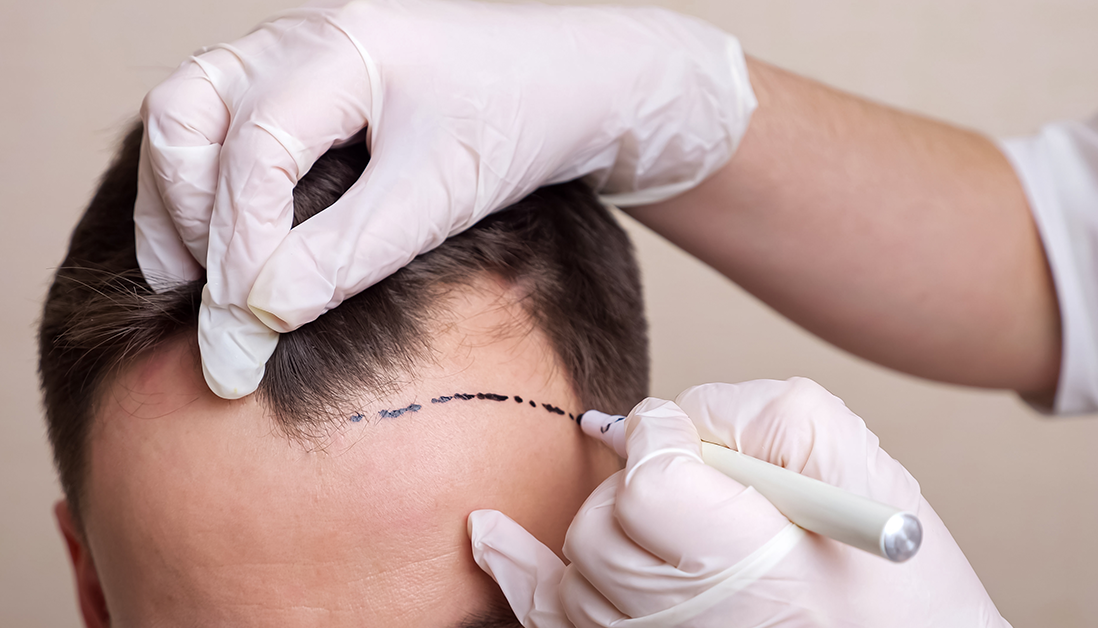Why are hair vitamins important for healthy hair?
Having luscious, vibrant hair is a goal for many of us. However, maintaining healthy hair can be challenging, especially with factors like pollution, stress, and poor nutrition taking a toll on our tresses. This is where hair vitamins come into play.
In this article, we’ll explore everything you need to know about hair vitamins and how they can help you achieve and maintain the hair of your dreams.
Understanding Hair Health
The structure of hair and its growth cycle
Before we dive into the world of hair vitamins, let’s take a moment to understand the basics of hair health. Each strand of hair consists of a protein called keratin, which is produced by hair follicles embedded in the scalp. Hair growth occurs in a cycle of three phases: anagen (growth phase), catagen (transition phase), and telogen (resting phase). Understanding this cycle is crucial to comprehend how hair vitamins can make a difference.
Factors that affect hair health
Various factors can impact the health of our hair. From genetics and hormonal changes to diet and external factors like heat styling and chemical treatments, our hair is constantly exposed to potential damage. While some factors are beyond our control, we can take proactive steps to nourish our hair from within, and that’s where hair vitamins come in handy.
Common Hair Problems
Hair loss and thinning
Hair loss and thinning are common concerns for both men and women. Factors like genetics, hormonal imbalances, and nutritional deficiencies can contribute to these issues. Hair vitamins can help provide the necessary nutrients to support hair follicles and promote healthy growth, potentially reducing hair loss and thinning.
Brittle and dry hair
If your hair feels dry, lacks shine, and is prone to breakage, it may be a sign of nutrient deficiency or damage from external factors. Hair vitamins containing essential nutrients like vitamins A, C, and E, along with biotin, can help nourish and hydrate your hair, restoring its natural strength and shine.
Slow hair growth
Are you eager for your hair to grow faster? The rate at which hair grows is influenced by several factors, including genetics and overall health. While hair vitamins can’t change your genetic makeup, they can provide the necessary nutrients to support healthy hair growth, potentially enhancing the speed at which your hair grows.
Role of Nutrition in Hair Health
How diet affects hair condition
The old saying, “You are what you eat,” holds true for our hair as well. A balanced diet rich in essential nutrients plays a crucial role in maintaining healthy hair. Nutrients like protein, vitamins, and minerals provide the building blocks for hair growth and strength. Incorporating a nutrient-rich diet along with hair vitamins can give your hair the nourishment it needs from both the inside and outside.
Essential nutrients for healthy hair
Several nutrients are key players in maintaining optimal hair health. Let’s take a closer look at some of the vital nutrients and their benefits:
Biotin (Vitamin B7)
Biotin is often referred to as the “hair growth vitamin” due to its role in promoting healthy hair. It supports the production of keratin, the main protein found in hair, and may help prevent hair thinning and breakage.
Vitamin A
Vitamin A is essential for maintaining the health of the scalp and hair follicles. It aids in the production of sebum, a natural oil that keeps the scalp moisturised, preventing dryness and flakiness.
Vitamin C
Vitamin C is a powerful antioxidant that helps protect hair follicles from damage caused by free radicals. It also aids in collagen production, which is essential for maintaining the strength and elasticity of hair strands.
Vitamin D
Vitamin D plays a crucial role in hair follicle cycling and hair growth. It helps create new hair follicles and may help reduce hair loss.
Vitamin E
Vitamin E is known for its antioxidant properties, which help protect the scalp and hair from oxidative stress. It also improves blood circulation to the scalp, promoting healthy hair growth.
Iron
Iron is necessary for carrying oxygen to the hair follicles. A deficiency in iron can lead to hair loss and dull, brittle hair. Hair vitamins containing iron can help maintain healthy hair and prevent iron-related hair problems.
Zinc
Zinc is involved in various processes that support hair health, including DNA and protein synthesis. It helps keep the oil glands around hair follicles functioning properly and may help prevent hair loss.
What Are Hair Vitamins?
Definition and purpose of hair vitamins
Hair vitamins are supplements specifically formulated to support hair health and address common hair concerns. They are usually packed with a combination of essential nutrients, vitamins, and minerals known to promote healthy hair growth, strengthen hair strands, and improve overall hair condition.
Types of hair vitamins available
Hair vitamins come in various forms, including capsules, gummies, and powders. Some hair vitamins are designed to target specific concerns, such as hair loss or thinning, while others provide a comprehensive blend of nutrients for overall hair health. It’s essential to choose a hair vitamin that suits your specific needs and preferences.
Key Ingredients in Hair Vitamins
Biotin (Vitamin B7)
As mentioned earlier, biotin is a vital ingredient in hair vitamins due to its role in supporting hair growth and preventing hair breakage. It aids in the production of keratin, the protein that makes up the structure of hair strands.
Vitamin A
Vitamin A helps maintain a healthy scalp by promoting sebum production, which moisturises the scalp and keeps it nourished. A well-nourished scalp is crucial for optimal hair growth.
Vitamin C
Vitamin C not only acts as an antioxidant but also aids in collagen production. Collagen is a protein that provides structure to the hair strands, making them stronger and less prone to breakage.
Vitamin D
Vitamin D plays a role in hair follicle cycling and may help stimulate hair growth. It also helps regulate the hair growth cycle, ensuring healthy hair turnover.
Vitamin E
Vitamin E’s antioxidant properties protect the scalp and hair from damage caused by free radicals. It also improves blood circulation to the scalp, promoting nutrient delivery to hair follicles.
Iron
Iron is crucial for oxygen transport, and adequate oxygen supply is necessary for healthy hair follicles and hair growth. A deficiency of iron can lead to hair loss, making it an essential ingredient in hair vitamins.
Zinc
Zinc plays a role in DNA and protein synthesis, which are necessary for hair growth and repair. It helps maintain the oil glands around hair follicles, ensuring proper lubrication and reducing the risk of hair loss.
Scientific Evidence on Hair Vitamins
Studies supporting the effectiveness of hair vitamins
Numerous studies have explored the efficacy of hair vitamins in promoting hair health and addressing specific hair concerns.
While these studies provide promising evidence, it’s important to note that individual results may vary. Hair health is influenced by various factors, including genetics, overall health, and lifestyle. Therefore, it’s advisable to consult with a healthcare professional before starting any new supplement regimen.
Potential limitations and considerations
While hair vitamins can be beneficial for many individuals, it’s essential to approach their use with realistic expectations. Here are a few considerations to keep in mind:
- Consistency is key: Hair vitamins need to be taken consistently and as directed to see potential benefits. Results may not be immediate, and it may take several weeks or even months to notice significant improvements in hair health.
- Multifactorial approach: Hair vitamins work best when combined with a holistic approach to hair care. This includes following a balanced diet, practicing good hair hygiene, minimising heat and chemical damage, and managing stress levels.
- Underlying causes: Hair problems can sometimes be a result of underlying medical conditions or hormonal imbalances. In such cases, it’s important to address the root cause along with incorporating hair vitamins into your routine.
- Individual response: Each person’s body and hair are unique, so the effectiveness of hair vitamins can vary from person to person. What works for someone else may not work the same way for you. Patience and experimentation may be necessary to find the right combination of nutrients for your hair.
Choosing the Right Hair Vitamins
Factors to consider when selecting hair vitamins
With a wide array of hair vitamin options available in the market, it’s important to make an informed choice. Consider the following factors when selecting hair vitamins:
- Ingredients: Look for hair vitamins that contain key ingredients like biotin, vitamins A, C, D, and E, iron, and zinc. These nutrients are known to support hair health.
- Quality and reputation: Choose hair vitamin brands that have a good reputation and adhere to quality standards. Look for certifications or third-party testing to ensure the product’s safety and efficacy.
- Reviews and testimonials: Read reviews and testimonials from other users to get an idea of the product’s effectiveness. However, keep in mind that individual experiences can vary.
- Form and convenience: Consider the form of the hair vitamins, such as capsules, gummies, or powders, and choose the one that suits your preferences and lifestyle.
- Allergens and dietary restrictions: Check the product’s label for potential allergens or ingredients that may not be suitable for your dietary restrictions.
Reading and understanding supplement labels
When purchasing hair vitamins, it’s important to read and understand the supplement labels. Here are some key points to consider:
- Serving size and dosage: Pay attention to the recommended serving size and dosage instructions. Follow them carefully to ensure you’re getting the appropriate amount of nutrients.
- Nutrient content: Look for the quantities of key nutrients present in the supplement. Ensure they align with your specific needs and any deficiencies you may have.
- Additional ingredients: Check for any additional ingredients, fillers, or additives that may be present in the supplement. Avoid products with unnecessary or potentially harmful additives.
- Expiration date and storage instructions: Note the expiration date to ensure the product is fresh and potent. Follow the recommended storage instructions to maintain the supplement’s integrity.
Remember, it’s always a good idea to consult with a healthcare professional or a registered dietitian before starting any new supplement regimen, especially if you have underlying health conditions or are taking medications.
Hair Vitamin Myths and Facts
Debunking common misconceptions about hair vitamins
As with any popular topic, there are bound to be myths and misconceptions surrounding hair vitamins. Let’s address some common myths and myths and facts to clarify any misunderstandings:
- Myth: Hair vitamins can magically transform your hair overnight. Fact: Hair vitamins require consistent use over time to see results. They provide essential nutrients that support hair health, but they are not a quick fix for all hair problems.
- Myth: Taking excessive amounts of hair vitamins will make your hair grow faster. Fact: Hair growth is a complex process influenced by various factors. Taking excessive amounts of hair vitamins won’t speed up the natural hair growth rate and may even lead to adverse effects. Stick to the recommended dosage.
- Myth: Hair vitamins alone can cure severe hair loss or baldness. Fact: Severe hair loss or baldness often requires medical intervention. While hair vitamins can support hair health, they may not be sufficient to reverse significant hair loss caused by genetic factors or medical conditions.
- Myth: All hair vitamins work the same way for everyone. Fact: Each individual’s response to hair vitamins can vary. Factors such as genetics, overall health, and lifestyle play a role in determining the effectiveness of hair vitamins. It may take some trial and error to find the right combination that works for you.
- Myth: Once you start taking hair vitamins, you can stop practising good hair care habits. Fact: Hair vitamins are a complement to a healthy hair care routine, not a substitute. Good hair care habits, including proper hygiene, protecting hair from damage, and maintaining a balanced diet, are essential for long-term hair health.
Combining Hair Vitamins with Other Hair Care Practices
Proper hair care routine for optimal results
To maximise the benefits of hair vitamins, it’s important to incorporate them into a comprehensive hair care routine. Here are some tips for achieving and maintaining healthy hair:
- Follow a balanced diet: In addition to hair vitamins, consume a well-rounded diet rich in fruits, vegetables, lean proteins, and healthy fats. Nourishing your body with essential nutrients will support overall hair health.
- Keep hair clean and hydrated: Wash your hair regularly with a mild shampoo and conditioner suitable for your hair type. Hydrate your hair with deep conditioning treatments and use leave-in conditioners to prevent dryness and brittleness.
- Minimise heat and chemical damage: Limit the use of heat styling tools such as straighteners and curling irons. When using heat, apply a heat protectant to minimise damage. Avoid excessive chemical treatments, such as bleaching or perming, as they can weaken the hair.
- Protect hair from environmental damage: Shield your hair from harsh environmental factors, such as UV rays and pollution. Wear a hat or use protective hair products containing SPF when exposed to the sun. Consider using a scarf or hat in polluted areas.
- Avoid tight hairstyles: Pulling hair tightly into ponytails, braids, or buns can cause tension and lead to hair breakage. Opt for looser hairstyles or alternate between different styles to minimise stress on the hair strands.
- Manage stress: Chronic stress can contribute to hair problems. Practice stress management techniques like exercise, meditation, or engaging in hobbies to promote overall well-being and reduce stress levels.
Remember, hair care is a journey, and results may take time. Be patient, consistent, and gentle with your hair to achieve the best possible outcome.
Possible Side Effects and Precautions
Potential risks and side effects of hair vitamins
While hair vitamins are generally safe when taken as directed, it’s important to be aware of potential side effects and take necessary precautions. Here are some considerations:
- Allergic reactions: Some individuals may experience allergic reactions to certain ingredients in hair vitamins. If you notice any adverse effects like rash, itching, or difficulty breathing, discontinue use and seek medical attention immediately.
- Overdosing on certain nutrients: Taking excessive amounts of certain vitamins or minerals can lead to adverse effects. Follow the recommended dosage and avoid combining multiple supplements without consulting a healthcare professional.
- Interactions with medications: Hair vitamins can interact with certain medications, such as blood thinners or medications for specific health conditions. If you’re taking any medications, consult your healthcare provider before starting hair vitamins to ensure there are no potential interactions.
- Precautions for specific populations: Pregnant or breastfeeding women, individuals with underlying medical conditions, or those undergoing medical treatments should consult their healthcare provider before taking hair vitamins. They may have specific nutrient needs or considerations that need to be taken into account.
- Always read the product label and consult with a healthcare professional to determine if hair vitamins are suitable for you, especially if you have any underlying health concerns or are taking medications.
Frequently Asked Questions (FAQs)
Common questions about hair vitamins and their answers
- Are hair vitamins suitable for everyone? Hair vitamins are generally safe for most individuals. However, it’s advisable to consult a healthcare professional before starting any new supplement, especially if you have underlying health conditions or are taking medications.
- How long does it take to see results from hair vitamins? Results can vary from person to person. Consistent use of hair vitamins, along with a healthy hair care routine, may lead to noticeable improvements in hair health within a few weeks to a few months.
- Can hair vitamins cure baldness or severe hair loss? Hair vitamins may support hair health and help reduce hair loss, but they may not be sufficient to cure severe hair loss or baldness caused by genetic factors or medical conditions. In such cases, medical intervention may be necessary.
- Can I take multiple hair vitamins together? It’s generally recommended to follow the dosage instructions of a single hair vitamin product. Taking multiple hair vitamins simultaneously without professional guidance can lead to excessive nutrient intake and potential side effects.
- Are there natural alternatives to hair vitamins? A balanced diet rich in essential nutrients can provide the necessary vitamins and minerals for healthy hair. However, if you struggle to meet your nutrient needs through diet alone, hair vitamins can be a convenient supplement.
Remember, it’s always best to consult with a healthcare professional or a registered dietitian for tailored advice regarding hair health and supplementation.
Conclusion
Achieving and maintaining healthy hair requires a multifaceted approach that includes proper nutrition, good hair care practices, and, in some cases, the supplementation of hair vitamins. These specialised supplements can provide essential nutrients to support hair growth, combat hair loss, and improve overall hair condition.
While hair vitamins can be beneficial, it’s important to manage expectations and understand that they are not miracle solutions. Consistency, a balanced diet, and a holistic hair care routine are key to achieving optimal results.
Before starting any new supplement regimen, it’s wise to consult with a healthcare professional to ensure it aligns with your individual needs and health status. By taking a proactive approach to hair health and incorporating hair vitamins as part of a comprehensive strategy, you can nurture your hair from within and enjoy the benefits of healthy, beautiful locks.



